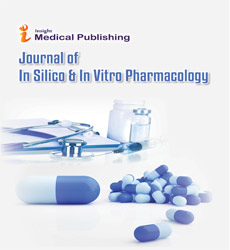Adverse drug reactions-Mechanism
Sheela Ankolekar
Norgine, UK
Published Date: 2022-09-24Abstract
There are multiple ways in which drugs cause adverse drug reactions (ADR). Most of the ADRs can be predictable depending on the pharmacological profile of the drug and some are unpredictable and depend on other characteristics like patient age, sex, nutrition and genetic factors. The most common mechanism for an ADR is the augmented pharmacological action, which is the known, inherent pharmacologic effect of the drug and is dose related; example insulin given for diabetes may cause hypoglycemia. A different mechanism of ADR is drug interaction which is a reaction between two or more drugs or between a drug and a food, beverage, or supplement. When two drugs are used together, their effects can be additive, synergistic or antagonistic. Photosensitivity is another mechanism of ADR which could be either phototoxic or photoallergic. Additionally, selected drugs cause drug dependence which could be psychological or physical. Some drugs cause intolerance which is a characteristic pharmacologic effect produced by an unusually small dose, so that the usual dose tends to induce a massive overaction. Another mechanism is teratogenicity. A teratogen acts by different mechanisms like folate antagonism, neural crest cell disruption, endocrine disruption, oxidative stress, vascular disruption, specific receptor or enzyme mediated teratogenesis. Example: Thalidomide has antiangiogenic actions which has been proposed to play a role in thalidomide teratogenesis. Mutagenicity and carcinogenicity are other mechanisms of ADRs. Deoxyribonucleic acid (DNA) is the most common primary target for chemical carcinogen and for a single DNA polymerase, DNA damage can affect replication in different ways. Finally, idiosyncratic reaction and drug hypersensitivity are largely unpredictable ADRs. Affected people may have genetic differences in the way their body metabolizes or responds to drugs and this can occur even with smaller doses. Knowledge of the mechanism of ADRs can help to prevent or reduce these reactions.
Open Access Journals
- Aquaculture & Veterinary Science
- Chemistry & Chemical Sciences
- Clinical Sciences
- Engineering
- General Science
- Genetics & Molecular Biology
- Health Care & Nursing
- Immunology & Microbiology
- Materials Science
- Mathematics & Physics
- Medical Sciences
- Neurology & Psychiatry
- Oncology & Cancer Science
- Pharmaceutical Sciences
